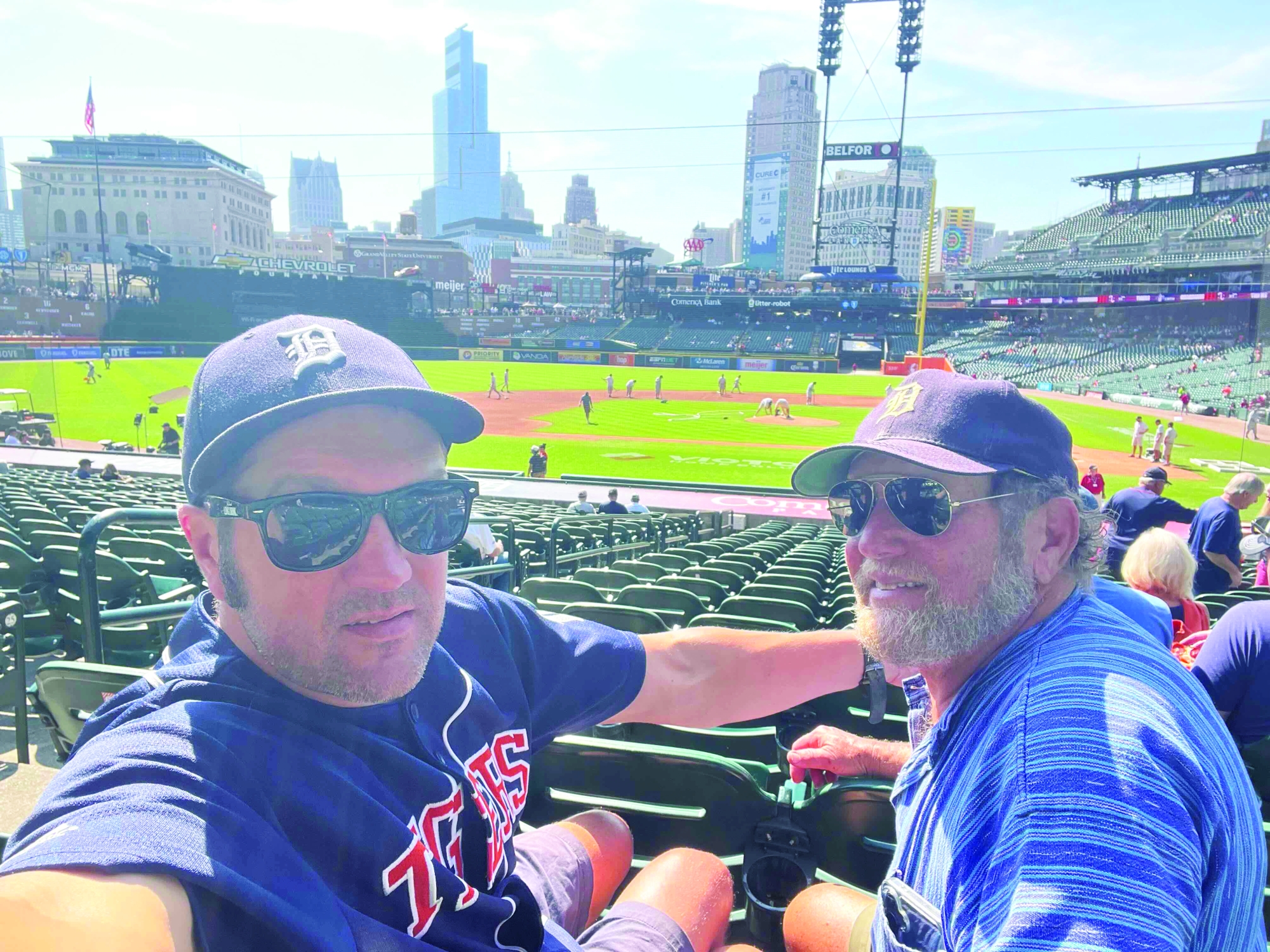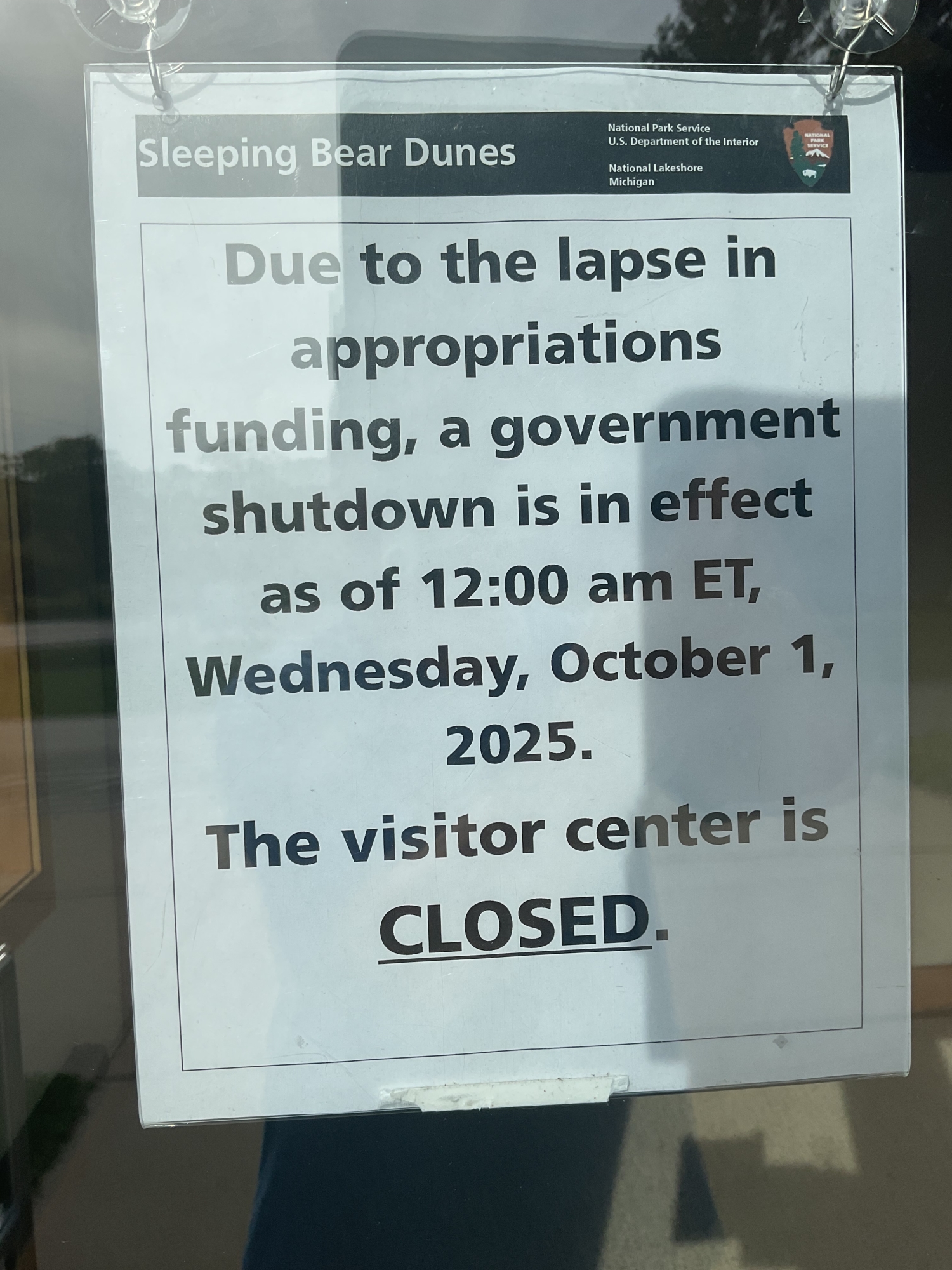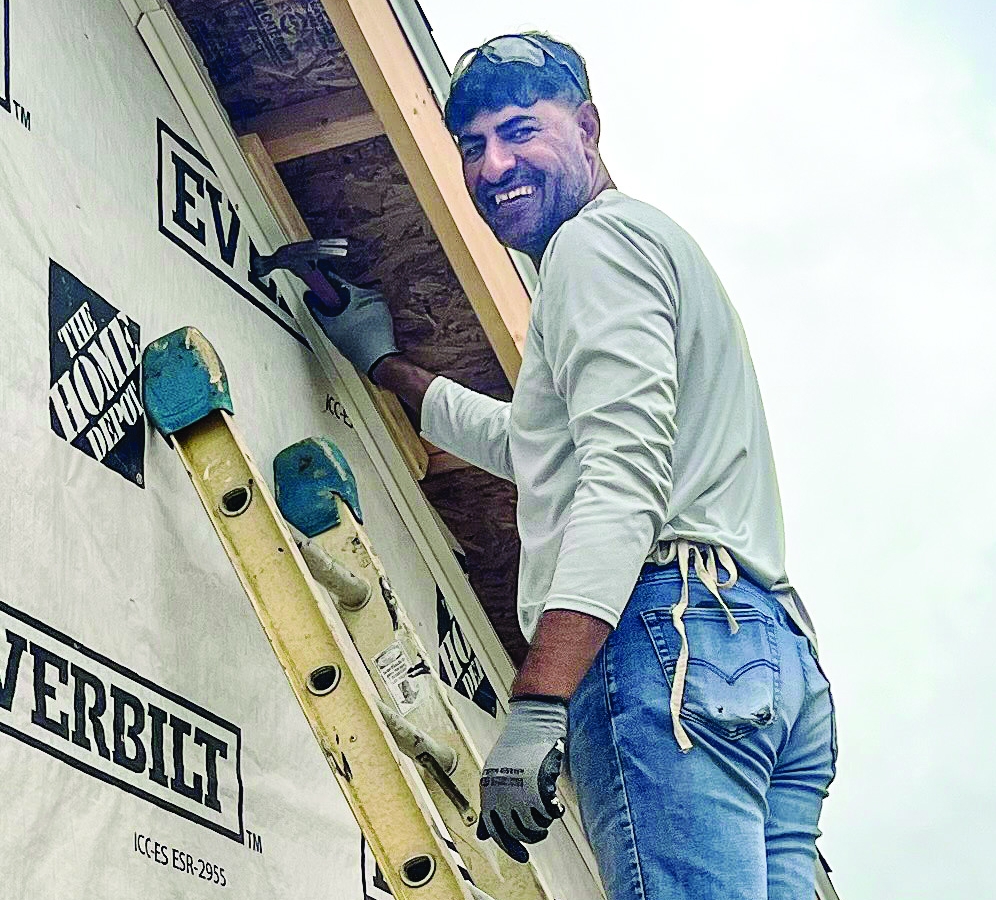Father-son baseball pilgrimage resumes as Tigers stalk October
By Jacob Wheeler
Sun editor

Tigers ace Tarik Skubal faces the Cleveland Guardians on Sept. 18.
Some traditions and rituals return season after season, some wither away, and some are reborn after years of hibernation.
Last month, my dad and I resumed our annual father-son baseball pilgrimage—this time to watch two games at Comerica Park in Detroit, where the Tigers were trying to stave off the rival Cleveland Guardians and gain a spot in the playoffs. Their roaring, red-hot start to the season had earned them the best record in baseball until July before they collapsed like a dozing cat and squandered a seemingly insurmountable 15.5-game lead over the team from Lake Erie.
A decade had lapsed since we last saw a Major League game together—a dramatic 11-inning Cubs’ victory over Cincinnati in June 2015 at Wrigley Field in Chicago. We’ve been busy since then—I as a father of two young children; Norm playing music or reciting poetry nearly every single night of the week during the summer months in Leelanau County. After all, it’s difficult to justify leaving northern Michigan in the heart of our glorious summer.
But we scored tickets for a mid-week night game followed by a day game and found a downtown apartment within walking distance of the ballpark. Our first stop in the Motor City was lunch at Baobob Fare, an East-African restaurant founded by Burundi refugees on the northside where we met our Palestinian Detroit friend Lujine. Though shaped around baseball, our pilgrimages through the years have transcended sporting events; they’ve also been cultural immersions, which was particularly important back in the day before Leelanau and Traverse City hosted diverse restaurants, cosmopolitan gatherings and live music throughout the year.
During the summers of the 1990s, we would drive to Chicago and watch three to four Cubs and White Sox games over 72 hours—sometimes squeezing in a night game up the road in Milwaukee. Our excursions also included Shakespeare theater at Navy Pier, a performance of Cirque du Soleil, and late-night dinners in Greektown (Norm hitchhiked through the Greek isles in the ’70s and picked up some of the language and customs, making him a lifelong Grecophile).
But baseball—the original American national pastime, this methodical, pastoral affair played with a sphere wound together with a leather cover hand-stitched in red thread—baseball formed the backbone of our father-son bond. If Telemachus had played a modern sport while seeking his father, the Greek classic The Odyssey would have been set on a baseball diamond.
Our family’s baseball lineage stretched back to my great grandfather, Pete Brondyke, the child of Dutch immigrants and a hardscrabble farmer in New Era, Michigan, who shoveled coal during the Great Depression to make ends meet and feed his family. A devout Christian who worshipped every Sunday, Grandpa Brondyke also loved the American game. When he and his wife Hattie retired to a trailer park near an orange grove in Bradenton, Fla., my dad would visit them and watch spring training games.
On our drive down to the Motor City in September, dad remembered attending a Detroit-Cleveland game together with his grandfather and his mom in 1968, a few weeks before his 17th birthday. That contest featured a pitching matchup between Denny McClain—who would win 31 games and the Cy Young award as the Tigers won the World Series—and the great Cuban hurler Luis Tiant. Tiant won that game, 2-0. 1968 was called “the year of the pitcher,” in an era where hurlers finished their own games rather than yield to the bullpen.
In 1989, dad took my sister and me to our first big-league games at Wrigley Field. On Julia’s birthday, April 27, we watched the Cubs beat the defending World Series champion Los Angeles Dodgers, 1-0, on a cold spring Chicago day with the wind swirling off nearby Lake Michigan. Rising phenom Greg Maddux beat last year’s pitcher of the year Orel Hershiser and scored the game’s only run.
We stayed that night downtown at the Allerton Hotel on Michigan Avenue. Ever outgoing, Norm saw Dodgers star, and former Tiger great, Kirk Gibson getting into a limousine across the street. “Hey Newberry!” he yelled to Gibbie, who he claims waved back (Gibson was rumored to have a hunting cabin near Newberry in the Upper Peninsula).
Good friends joined us on our 1990s summer baseball trips: Dave Early, who then worked at Lake Forest Academy north of Chicago, where we would crash in empty dorm rooms; Ray Nargis, and his sons Jason and Tim; Crispin Campbell and his daughters, Elara and Maya, who drove down to Chicago with us in Glen Arbor artist Suzanne Wilson’s old white van.
One night in Milwaukee, we saw the visiting Tigers push a game into extra innings when Detroit’s legendary shortstop Alan Trammel danced to his right side to backhand a ground ball and looped a throw to first base in time to beat the Brewers’ batter with the bases loaded and two outs. The game went into 14 innings, the concession stands stopped serving beer, and we heard a Milwaukee fan who had moved down behind home plate audibly complain, “Hurry up and finish this game. I’m sobering up!”
The baseball experience was different then. Even Wrigley Field, the crowned jewel of old ballparks, now boasts a video monitor over the left field bleachers, restaurants, beer gardens, and a mall of shops inside the complex. Back in 1989, during our first family visit, Wrigley felt like a worn and cherished cathedral. Dingy and odorous in the concourses, but the sight of the ivy growing on the outfield walls, the hand-operated scoreboard above the bleachers, and the thrill of the green grass—these shaped the senses of an 11-year-old boy as much as a first kiss.
Dad’s college friend Tom Martinsen from Milwaukee joined the three Wheelers for that April 1989 game at the Friendly Confines. Back then, a simple McDonald’s sat across the street from Wrigley. Martinsen went there to grab a burger after the game and noticed a payphone in the corner of the restaurant. When it rang, he answered it. The caller, whom Martinsen guessed had listened to the game on the radio, asked if the Cubs had won the 1-0 game on a legitimate double, or whether the Dodgers’ outfielder had misplayed the ball. Martinsen thought about it and responded, “I would have scored it a double.”
“Great. Thanks,” the caller responded and hung up.
Martinsen concluded that the poor Cubs fan, stuck in an office, probably called that pay phone after every afternoon game, knowing that whoever answered was coming from the ballpark. Nowadays, the fan would have watched the game on his tablet or his phone from his cubicle.
At Comerica Park in Detroit last month, as we watched Tigers ace Tarik Skubal take the mound and try to salvage their season, we couldn’t help but lament at how baseball has changed through the decades. The fans’ experience now felt like a sensory assault: full of noise and flashing video screens, numbers and distractions—a gauntlet run through a hyper-technological arcade of slot machines and virtual experiences. The scoreboard presentation seemed more geared toward an online audience with a lower attention span who are more attracted to football or NASCAR-style smash-mouth highlight reels. Ignoring the noise and concentrating on baseball’s subtleties and strategy on the field required mental and emotional energy.
But the prose and plays of the grand old game would guide us through our crisis of faith.
The foul ball couldn’t have come at a better time. The ball ricocheted off the outstretched bat of the Cleveland hitter, looped over the protective netting behind home plate, and fell into the hands of a middle-aged man wearing Detroit Tiger orange about 20 feet from us. If the great baseball announcer Ernie Harwell were still alive, he would have used his on-air creative license to invent a hometown for the fan. “A lucky man from Lake Leelanau caught that foul ball,” Ernie might have said.
“Give it to the kid. Give it to the kid!” persuasive shouts immediately rang out in the box seats all around us. The fan from Lake Leelanau abided by the baseball tradition of generosity and handed the ball to the kid holding a sign declaring that he had skipped school to celebrate his 7th birthday and watch Skubal pitch.
Baseball had attracted yet another follower.
Skubal left after six innings with the game tied, 1-1; the Tigers lost and eventually dropped eight straight games, handing the Central Division title to Cleveland. They secured a playoff spot on the last weekend of September and played the Guardians again the first week of October, this time eking out a 2-1 Wild Card series win. At the moment, the Tigers are locked in a Division Series duel with the Seattle Mariners but trailing 2 games to 1, their season once again on the brink.





